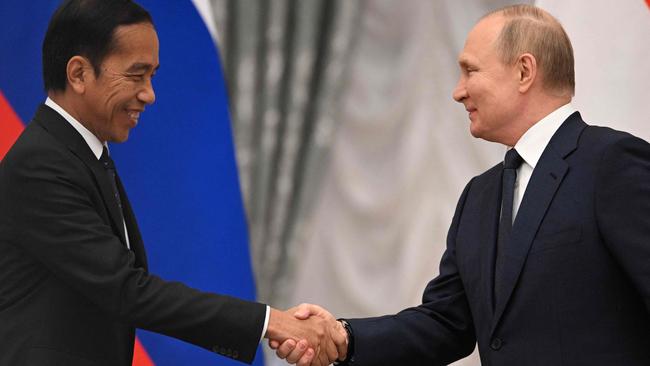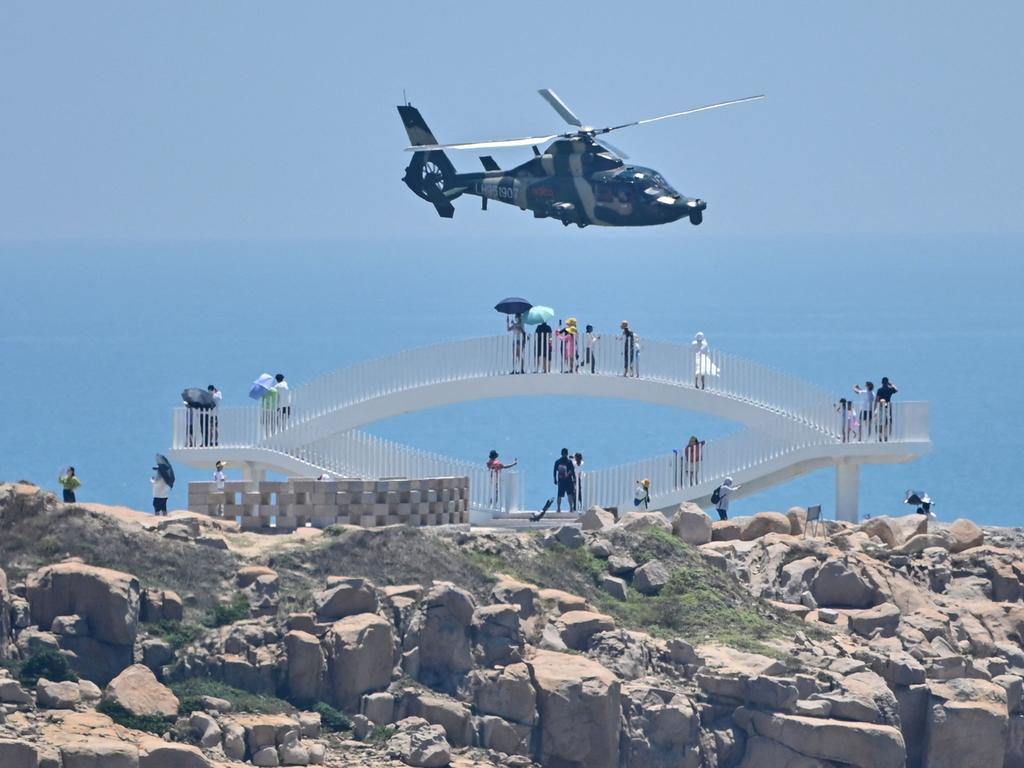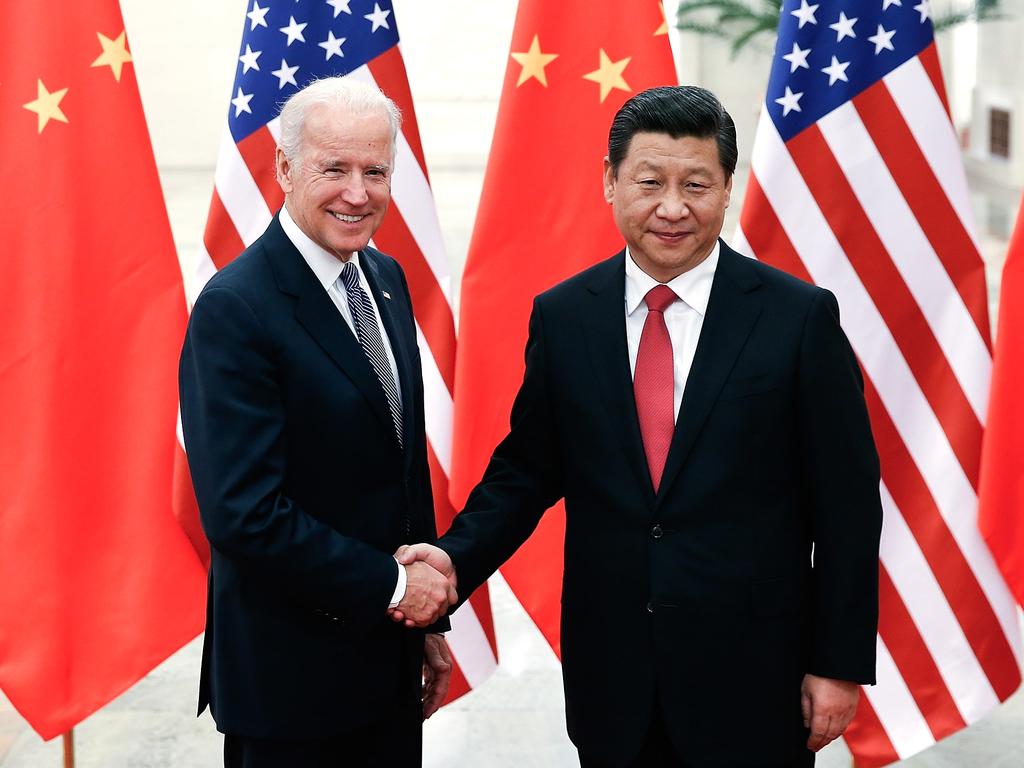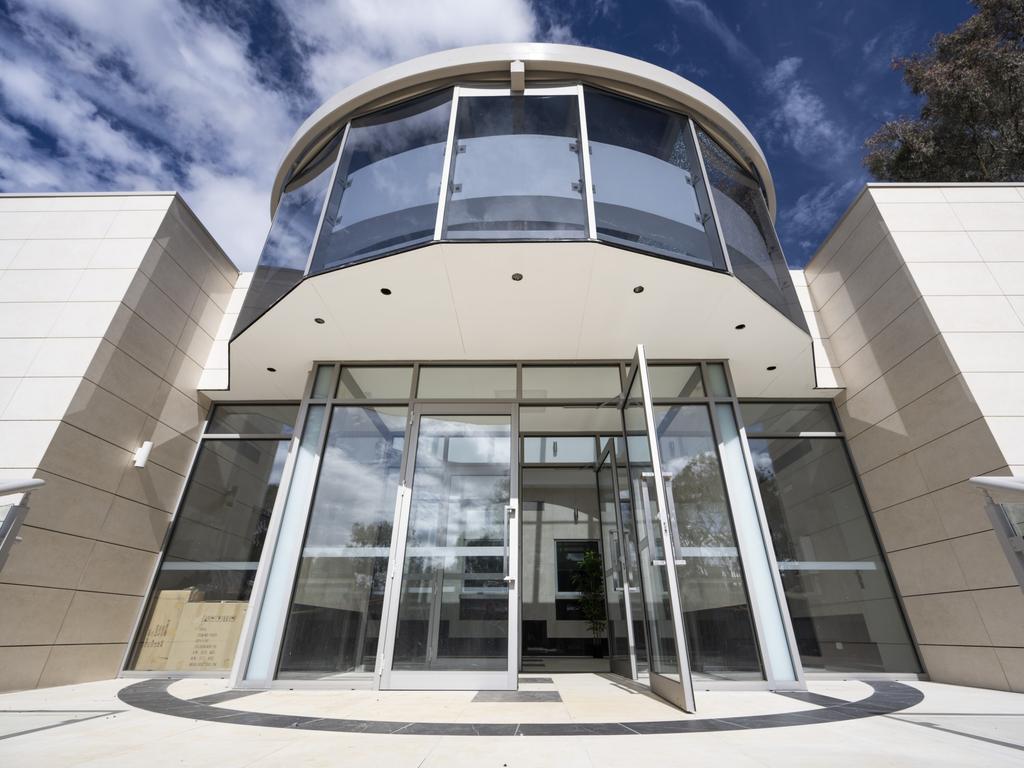Vladimir Putin and Xi Jinping will rock up to G20 summit
The Russian and Chinese presidents plan to sit across the table from other world leaders in Bali in November.

Russian President Vladimir Putin and China’s Xi Jinping will attend the G20 annual leaders’ summit in Bali in November, setting the stage for a tense two-day meeting and Indonesia’s Joko Widodo’s biggest foreign policy test.
“Xi Jinping will come. President Putin has also told me he will come,” Jokowi told Bloomberg in official confirmation that both leaders plan to sit at the summit table with Joe Biden, Anthony Albanese and other democratic leaders.
The Bali meeting of leaders from the world’s top 20 economies will be the first since Russia’s invasion of Ukraine in February, and since Beijing staged its provocative live fire drills in the Taiwan Strait earlier this month.
Mr Xi’s visit to Indonesia for the event will also be his first international trip since the beginning of the pandemic, while Mr Putin has not ventured further than Iran and Central Asia this year.
The Kremlin has insisted for months that Mr Putin would join the G20 meeting, though it had previously been widely assumed that he would do so virtually.
However, after Jokowi confirmed his attendance, an official familiar with the situation told Bloomberg the Russian leader planned to attend in person.
Ukraine President Volodymyr Zelensky has also accepted Jokowi’s invitation to attend the summit though is likely do so virtually.
The Indonesian President is under intense pressure to ensure the G20 summit is a success amid soaring international tensions over Russia’s war in Ukraine and China’s heightened aggression within the region, and has devoted more time to international diplomacy this year than at any other time during his eight years in office. In June he became the first Asian leader to visit Ukraine and Russia, in what he said was a mission to build a “bridge for peace”.
“The rivalry of the big countries is indeed worrying,” Jokowi, 61, said on Thursday. “What we want is for this region is to be stable, peaceful, so that we can build economic growth. And I think not only Indonesia: Asian countries also want the same thing.”
As the G20 host, Indonesia has sought to balance ties between major powers while resisting pressure from the US and other G7 nations to exclude Russia from meetings. But few are underestimating the difficulties Indonesia faces in pulling off a successful summit in which there are no embarrassing walkouts or face-offs, and which produces a meaningful joint communique.
“It is a very difficult task because the situation at the foreign ministers’ meeting was uncontrollable,” said Teuku Rezasyah, an Indonesian foreign policy analyst and international relations professor at Padjadjaran University.
At that July meeting, ministers from many democratic nations, including Australia, boycotted the traditional family photo to avoid being seen with Russian Foreign Minister Sergei Lavrov, who left the meeting early.

Professor Rezasyah said Indonesian diplomats faced an intense foreign policy test in coming months as they begin negotiating a joint communique between the deeply divided group, and Jakarta would likely look to Australia and Japan to help it persuade G7 nations to reach consensus. “I think Australia will be asked to help. Indonesia needs allies to ensure the meeting runs well and President Jokowi will be looking to Australia to help keep things cordial,” he said.
While former prime minister Scott Morrison expressed deep misgivings about sitting at the same summit table as Mr Putin, Mr Albanese has committed to attending the summit and helping Indonesia ensure it is a success.
But China’s recent military aggression in the Taiwan Strait – in which it launched ballistic missiles over Taiwan and staged live-fire drills in retaliation for US house Speaker Nancy Pelosi’s visit to Taipei – has made that task more difficult.
US-China relations are at their lowest point in decades. Earlier this month Beijing halted dialogue with Washington on issues from climate change to military relations, while the US this week announced it will strengthen trade ties with Taipei and conduct freedom-of-navigation exercises through the Taiwan Strait.
On Thursday, however, Jokowi urged all G20 nations to focus on dealing with the triple crises of food, energy and the pandemic. “Indonesia wants to be friends with everyone,” he said. “We don’t have problems with any country. Each country will have their own approach. Each leader has their own approach. But what’s needed by Indonesia is investment, technology that will change our society.”








To join the conversation, please log in. Don't have an account? Register
Join the conversation, you are commenting as Logout